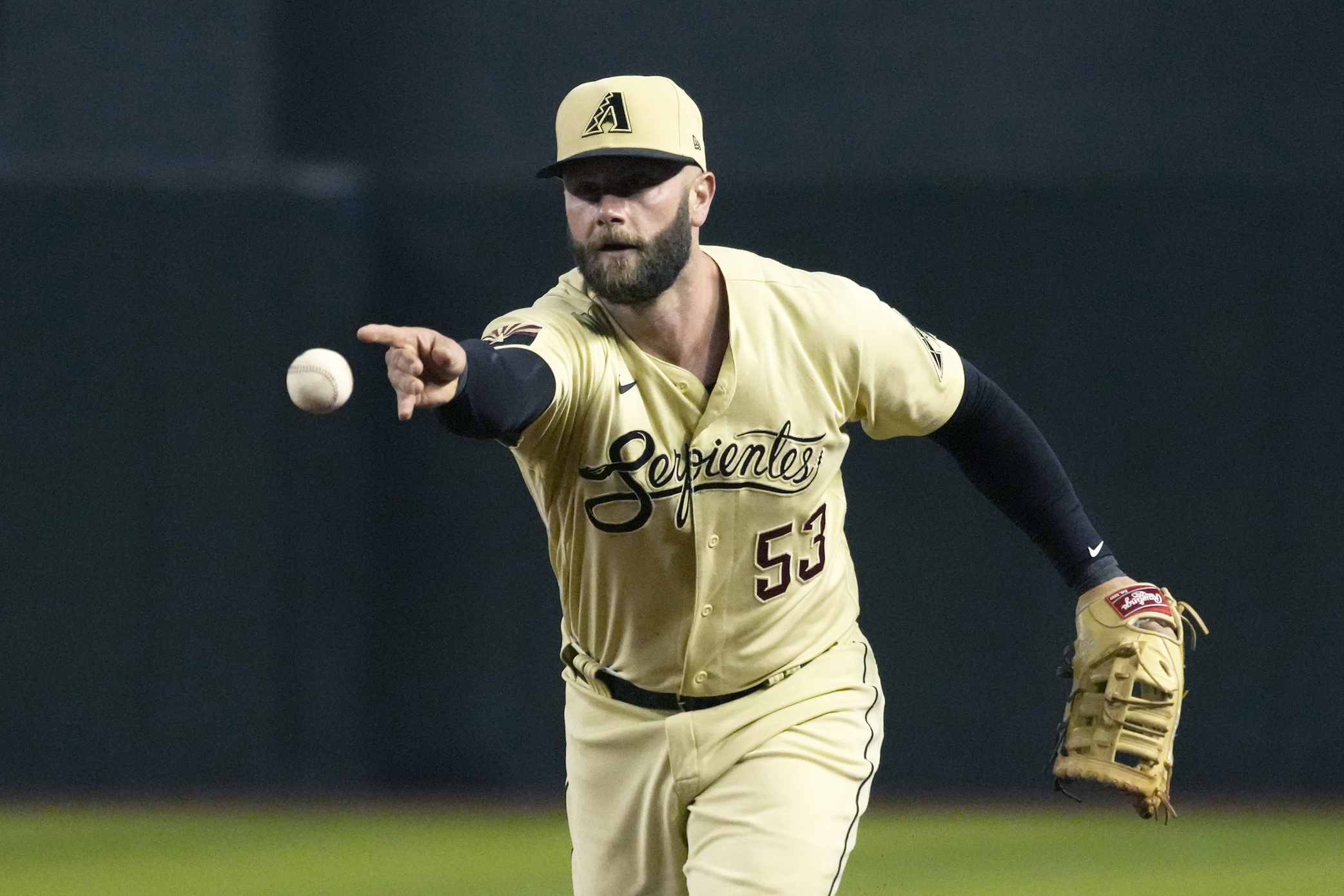© 2025 ALLCITY Network Inc.
All rights reserved.

After two months and exactly 200 plate appearances, Christian Walker is batting .203/.295/.469 with 13 homers, eight doubles and 25 RBI in 2022.
At first glance, it seems unremarkable. A first baseman batting a tick over the Mendoza line while slugging .469? Chris Carter, is that you?
A closer look reveals that, not only are Walker’s offensive numbers far more respectable in a season where offense is down across the league, but he’s arguably been baseball’s unluckiest hitter to date. Oh, and he’s also playing better first-base defense than anyone in the game.
Why Walker’s offensive numbers are better than they look
Homers ticked up in May, but the league-wide ISO — a measure of raw power — was .146 through June 1, compared to .158 last year. That difference may not seem substantial, but this year’s mark is the lowest through June 1 since 2015. Power is down across the board — and that means it’s more valuable than ever.
Walker’s ISO of .266 is fifth in the National League, trailing only Mookie Betts, Bryce Harper and a pair of familiar faces in Jazz Chisholm and Paul Goldschmidt. He is also tied for second in the NL with 13 home runs, nine of which came in the month of May. He is on pace to hit 41 on the season.
Despite what his .203 batting average may tell you, Walker’s done more than sweetened his power stroke in 2022. He’s striking out less than ever, and his hard-hit rate of 45.3 percent is well above average. Put all that together, and it’s puzzling that Walker is batting just .203.
Let’s not forget the game we’re talking about, though. Hitters only have so much control. We’ve all seen that bloop that was 65 MPH off the bat fall in for a hit, only to have the very next batter’s 110 MPH liner find a glove. It’s baseball’s most beautiful — and frustrating — trait.
One of the best tools for measuring batter luck is BABIP, which stands for batting average on balls in play. Generally, a high BABIP indicates the batter has had more than his fair share of batted balls fall in, while a low BABIP indicates the opposite.
Walker’s BABIP sits at .185, which is second-lowest in baseball behind Max Muncy. It’s important to note that players do have some control over BABIP, and a low BABIP does not necessarily equate with bad luck. Running speed, hard-hit rate and batted ball tendencies (flyball, ground-ball, pop-up, etc.) are all key factors.
Given that Walker has roughly league-average sprint speed and an above-average hard-hit rate, there’s really no explanation for a .185 BABIP — other than a heap of bad luck.
No qualified hitter in the divisional era has ever finished a season with a BABIP under .196. The league-average BABIP is .288 in 2022, and Walker’s career BABIP is .291.
So, what if Walker’s BABIP was on par with his career norm instead of where it is now? On 123 balls in play, he would have 36 hits instead of 23. Accordingly, his batting average would balloon from .203 to .277.
Assuming (conservatively) all 13 of those additional hits are singles and his walk rate stays the same, Walker’s .203/.295/.469 batting line would elevate to .277/.360/.542. Obviously, that doesn’t reflect what’s actually happened on the field this season, but it provides a rough estimate of where he could — and arguably should — be.
The keys to Walker’s offensive breakout
There are undoubtedly several contributors to Walker’s breakout season in 2022, but the most glaring difference is that he’s punishing fastballs like never before.
Aside from a 2017 season in which Walker played just 11 games, he had never batted higher than .214 against four-seamers. This year, he’s batting .295 with a .754 slugging percentage.
He’s not necessarily hitting four-seamers harder — he’s always been pretty good at that — but he’s hitting them in the air more. Walker’s fly-ball rate on four-seamers has gone from 35.8 percent last year to 53.1 percent this season. For a guy who’s always had impressive raw power, that’s a good thing. Of the 26 four-seamers he’s hit in the air, eight have left the yard.
Line drives have been a different story for Walker — and the source of much of his bad luck. Despite a 93.9 MPH average exit velocity and an expected batting average of .637, Walker has batted .360 with a .440 slugging percentage on line drives this season.

The best first baseman in baseball
First base isn’t the most difficult or important defensive position, but somehow, that hasn’t stopped Christian Walker from ranking among the most valuable defensive players in baseball.
Walker is currently tied for fourth in baseball in defensive runs saved, trailing only Orioles shortstop Jorge Mateo, Cardinals third baseman Nolan Arenado and Pirates third baseman Ke’Bryan Hayes. He is also ninth in baseball in outs above average. Walker is the only first baseman to crack the top 35 on either list.
Most of Walker’s defensive value comes from his ability to move laterally to his right. According to Statcast, he has converted 77 percent of those opportunities, compared to an expected conversion rate of 66 percent. That translates to five additional outs, which is substantial for a first baseman.
Nonetheless, Walker will likely go under-appreciated for a while longer. But he’s arguably been a top-five first baseman this season, and it may only be a matter of time before his numbers show it.
Top photo: Jayne Kamin-Oncea/USA TODAY Sports
Follow Jesse Friedman on Twitter
Get Arizona's Best Sports Content In Your Inbox!Become a smarter Arizona sports fan with the latest game recaps, analysis and exclusive content from PHNX's writers and podcasters!
Just drop your email below!
Comments
Share your thoughts
Join the conversation



